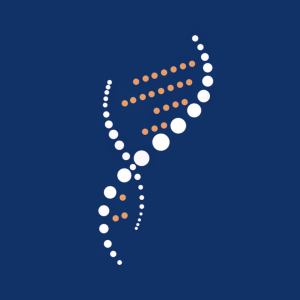New Myriad Genetics Survey Uncovers Women Fear Screenings—But Feel Reassured by the Results
Rhea-AI Summary
Myriad Genetics (NASDAQ: MYGN) has released findings from its Cancer Risk Survey revealing important insights about women's attitudes toward health screenings. The survey found that while 80% of women fear screenings, 75% would find genetic testing reassuring when facing health concerns.
The study highlighted that 37% of women believe genetic testing can help manage breast health, but 40% were unaware of genetic testing tools for breast cancer risk assessment. Only 14% of respondents have undergone genetic testing, despite over 25% of women in OB/GYN settings meeting hereditary cancer testing criteria.
The survey also revealed that while 50% of respondents consider parental health history important, only 30% knew their parents' health history well. Myriad's MyRisk® Hereditary Cancer Test with RiskScore® combines genetic insights, family history, and clinical factors to calculate breast cancer risk.
Positive
- 75% of women find genetic testing reassuring for health concerns
- MyRisk® test offers comprehensive breast cancer risk assessment combining multiple factors
- Survey reveals opportunity for expanding genetic testing adoption in eligible population
Negative
- 80% of women report fear of health screenings
- 40% of women lack awareness about genetic testing tools
- Only 14% of respondents have undergone genetic testing despite higher eligibility
- 70% of respondents don't know their parents' health history well
News Market Reaction
On the day this news was published, MYGN declined 2.65%, reflecting a moderate negative market reaction.
Data tracked by StockTitan Argus on the day of publication.
Cancer Risk Survey shows that more than half of women at high-risk for hereditary cancer would feel "empowered" by more advanced screening like genetic testing
SALT LAKE CITY, Aug. 13, 2025 (GLOBE NEWSWIRE) -- Myriad Genetics, Inc., (NASDAQ: MYGN), a leader in molecular diagnostic testing and precision medicine, today released findings from its latest Cancer Risk Survey that uncover a striking contradiction in women's attitudes toward health screenings. While
“Many women find health screenings—like mammograms, blood work, genetic testing—scary because they may be afraid of the unknown: ‘what if something’s wrong?’ On the other hand, they may intellectually understand that these screenings are important healthcare tools,” said Ifeyinwa Stitt, MD, OB/GYN and medical director, Caronette Fibroid & Pelvic Wellness Center Annapolis, MD. “My advice is to overcome the fear of the unknown—especially with genetic testing as this information could ultimately help us save their lives.”
The survey showed that more than one in three respondents (
“Genetic tests—like the MyRisk® Hereditary Cancer Test with RiskScore®—can provide valuable information about a patient’s hereditary risk for certain cancers. This information opens the door for additional screenings like more frequent mammograms and/or MRIs,” said Dr. Stitt. “This survey demonstrates the need for more and clearer conversations about genetic testing and how it can be integrated into a woman’s overall health care plan.”
_______________
1 Waldman, et al. 2024
The importance of family health history—and how it may help with screening
Along with additional screenings, knowing family cancer history is an important factor in calculating cancer risk. More than
Familial factors important to understand include multiple cancers in the family, the age at which a family member was diagnosed and whether the cancer was rare, such as pancreatic or ovarian cancer. Knowing this information can indicate that a person may benefit from hereditary cancer testing.
By combining genetic insights, family history and other clinical factors, the MyRisk Hereditary Cancer Test with RiskScore calculates a woman’s five-year and lifetime risk of breast cancer. If a woman is found to be at high risk, she then has multiple options available to her, including a change in medical management, such as earlier or increased frequency of screenings. For more information about understanding your risk of breast cancer, visit GetMyRisk.com.
About the Cancer Risk Survey
The nationwide survey was conducted online by ACUPOLL Precision Research, Inc. between April 9–22, 2025. The responding samples were comprised of:
- n=1,002 English-language proficient non-institutionalized US adult females who were recruited to represent the general US population sampled from an existing national general population research panel
- n=404 Adult females who met hereditary cancer risk testing criteria were also recruited so as to better understand attitudes and perceptions of this audience sampled from the same national general population research panel
The Margin of Error is +/-
ACUPOLL has more than 30 years’ experience conducting statistically valid research through careful recruiting and the utilization of numerous quality control measures.
About Myriad Genetics
Myriad Genetics is a leading molecular diagnostic testing and precision medicine company dedicated to advancing health and well-being for all. Myriad Genetics develops and offers molecular tests that help assess the risk of developing disease or disease progression and guide treatment decisions across medical specialties where molecular insights can significantly improve patient care and lower healthcare costs. For more information, visit www.myriad.com.
Safe Harbor Statement
This press release contains “forward-looking statements” within the meaning of the Private Securities Litigation Reform Act of 1995, including statements regarding the potential for genetic testing to provide valuable information about a patient’s hereditary risk for certain cancers, which may lead to additional screenings and ultimately help physicians save lives. These “forward-looking statements” are management’s expectations of future events as of the date hereof and are subject to known and unknown risks and uncertainties that could cause actual results, conditions, and events to differ materially and adversely from those anticipated. Such factors include those risks described in the company’s filings with the U.S. Securities and Exchange Commission, including the company’s Annual Report on Form 10-K filed on February 28, 2025, as well as any updates to those risk factors filed from time to time in the company’s Quarterly Reports on Form 10-Q or Current Reports on Form 8-K. Myriad is not under any obligation, and it expressly disclaims any obligation, to update or alter any forward-looking statements, whether as a result of new information, future events or otherwise except as required by law.
Investor Contact
Matt Scalo
(801) 584-3532
IR@myriad.com
Media Contact
Kate Schraml
(224) 875-4493
PR@myriad.com







